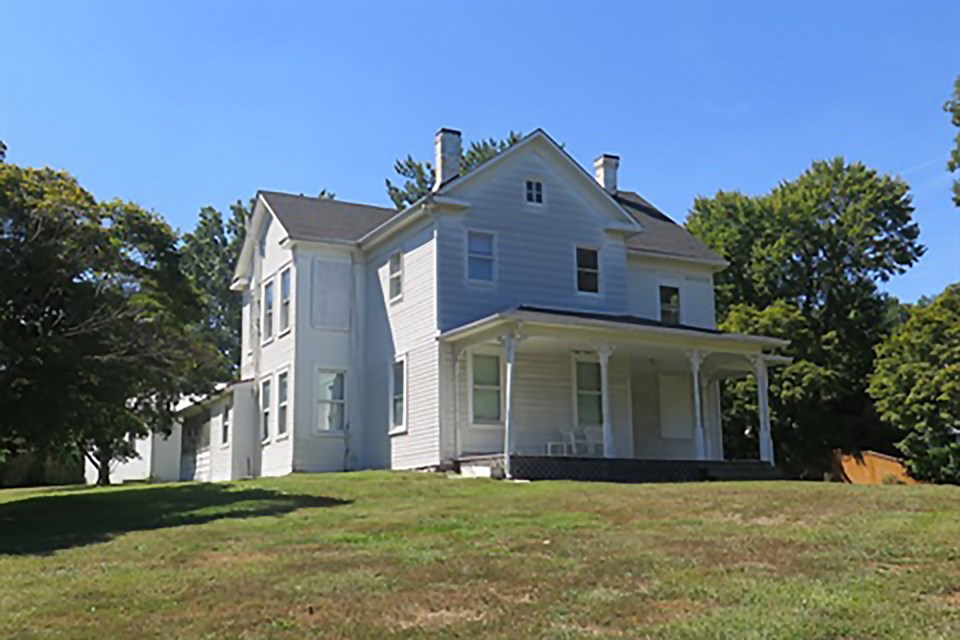Arlington County Board members on July 22 formally transferred ownership of the historic Reevesland farmhouse, a move that will allow for the Boulevard Manor-area property to be converted into a group home for individuals with intellectual challenges.
“Our region’s housing needs are diverse and call for the kind of collaboration this project embodies,” said Susanne Slater, president & CEO of Habitat for Humanity for the District of Columbia and Northern Virginia. Habitat will work with HomeAid National Capital Region in renovating and expanding the property, then turn it over to L’Arche Greater Washington,D.C., which will operate the home.
The end result? “Arlingtonians with intellectual disabilities will continue to be able to live in their county for generations to come,” said Luke Smith, executive director of L’Arche.
Habitat’s plans for the property at 400 North Manchster St. call for a two-story addition on the south side of the property and a one-story addition at the southwest side, which combined with the main house will provide for seven bedrooms and make the property compliant with Americans with Disabilities Act (ADA) requirements. Arlington County Board members on July 22 allocated $2.5 million in federal block-grant funding to support the initiative.
“It’s a big deal,” County Board Chairman Libby Garvey said of the planned transformation. “I wish it would have happened faster, but I’m really pleased the way it went. Our patience has been rewarded.”
Kristyn Burr, CEO of HomeAid National Capital Region, said the renovation effort will focus on the needs of future residents.
“What may seem like minor details to some, such as widening hallways and doorways, adding an elevator, building ADA-compliant bathrooms and ensuring the flooring is smooth so a wheelchair can glide over easily, are critical to this specific project,” Burr said.
Groundbreaking on the renovation/expansion effort is anticipated this fall.
“This goes beyond a construction project for us; we want to ensure this historic property becomes a vibrant home again and that we focus on the small things that will make a huge difference in the day-to-day lives of the people who reside there,” Burr said.
The farmhouse, outbuildings and land were acquired by the county government for $1.8 million shortly after the death of its last owner, Nelson Reeves. Reeves, who died in 2000, had been born in the house 99 years before and for much of his adult life operated the site’s dairy farm, the third generation of ownership dating back to the 1860s.
For years after the purchase, the property languished, with the county government seemingly unable to decide what to do with it. After three years of discussions, the county government and Habitat for Humanity in early 2020 inked the letter of intent to transform the property into a group home for L’Arche, but the arrival of COVID just weeks later sent that concept into limbo.



